Tag Archive: Carol Sanford
March 5, 2014

I just finished reading Mila Baker’s Peer-to-Peer Leadership: Why the Network is the Leader, which adds to the growing case for more widespread network thinking, foregrounding of human relationships, and shifting traditional conceptions (and myths) of leadership in business and beyond. Much of what Baker writes about has been expressed in the writings of others, including Clay Shirky, Carol Sanford, Nilofer Merchant, Kevin Kelly, and Harold Jarche, and I appreciate how she couches much of her writing in the evolving leadership and organizational development literature and thinking. Read More
February 27, 2014
In “networks-as-change,” effectiveness is grounded in affectiveness.

In an essay that I continue to revisit, the poet/essayist/novelist/farmer/ conservationist and champion of overall sanity, Wendell Berry, talks about what he calls “the turn towards affection.” Having spent many years reflecting on and pushing back against the unfortunate demonstrated human tendency to despoil landscapes and “the other,” he takes a strong stand for both deep rooted connection and . . . imagination: Read More
February 21, 2014
This post is the third in a three part series exploring the question, “Can collaboration be learned?” Part 1 and Part 2 appeared the last couple of days. This is an edited email exchange between Alison Gold of Living Cities, Chris Thompson of The Fund for our Economic Future, and myself. When we last left off, Alison had posed a series of questions about identifying and cultivating the will to collaborate.
On January 27, 2014 12:33 PM, Curtis Ogden wrote:
Alison, I really like your questions and feel like they would be great to take to a wider audience. I will say that I am profoundly influenced by Carol Sanford’s mentoring in all of this, and the belief that personal development is key to evolving our will, moving from a more self-centered perspective to “other” perspective, to understanding the symbiotic nature of different levels of systems. Read More
January 16, 2014
“Mr. Duffy lived a short distance from his body.”
– James Joyce, The Dubliners
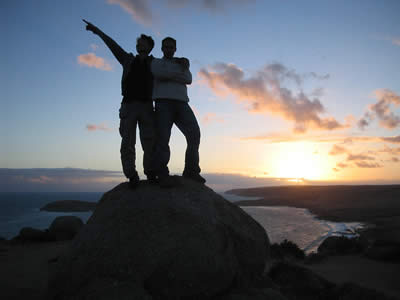
The above quote caught my attention in light of much thinking about and work around the importance of being more fully embodied in social change efforts. This year I have personally made some commitments to more intentionally acknowledge and care for my own body, including investing in a rather basic standing desk, and recommitting to a morning workout (this post on the lasting benefits of just a 20 minute exercise routine served as an extra-added push). And I’ve been carrying this commitment directly into my work with clients, not just in terms of focusing on the importance of caring for themselves, but also grounding aspirations they have for their work. Read More
April 24, 2013
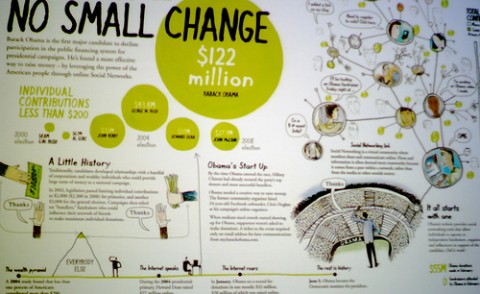
|Photo by Paul Downey|http://www.flickr.com/photos/psd/3003392453|
In the past few weeks, I have heard some interesting and divergent comments about networks as they relate to social change. In one case, someone in philanthropy declared that the “network experiment” was over and it was “back to funding individual organizations.” In another case, I heard tremendous enthusiasm expressed relating to the “paramount importance of building trust and relationships” for change to happen. To the first – “No!” To the second – “Yes, and . . .”. We are still in the midst to waking up to the reality and potential of networks in our lives, present company very much included. Here is some of what we are seeing and hearing with respect to where network approaches and tools, at their best and very much with our intention, can take us. Read More
April 4, 2013
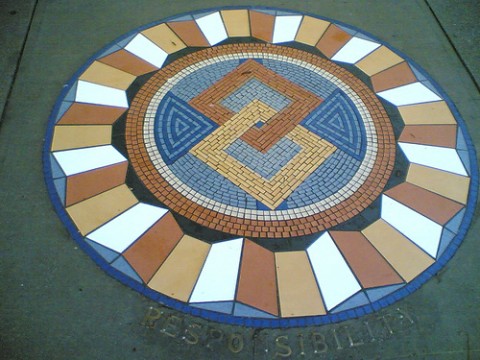
|Photo by Roland Tanglao|http://www.flickr.com/photos/roland/76395670/in/photostream|
Some very compelling points are made by Carol Sanford stemming from her work with “responsible businesses” about the importance of how people understand accountability. She cites pscyhological research that suggests that having a sense of personal responsibility for outcomes (or an “internal locus of control”), whether those outcomes are good or bad, equates with higher degrees of happiness, health, and creativity. The converse occurs when people attribute success and failure to outside forces. “Only when people are accountable for their own decisions can they develop the rigor and discipline called for in high-quality decision making,” Sanford writes. Read More
February 13, 2013

|Photo by Dawn Huczek|http://www.flickr.com/photos/31064702@N05/3847338602|
Working with numerous multi-stakeholder collaborative change efforts, we at IISC are often invited to help people co-create the structures and processes that will move their complex work and collective development forward. There is never an easy or readily apparent answer and each case is unique to its particular context and nature. A quote that I’ve found helpful to quell some of the anxiety that comes up around this work, especially among those who want to rush to adopt a structure that others have used and “get on to the work” (more on this false dichotomy here), comes from Fritjof Capra from the Center for Ecoliteracy. Capra writes about the importance of recognizing and working the dynamics of life. Read More
January 3, 2013

|Photo by Libby|http://www.flickr.com/photos/libbyandnicki/6337707632|
A number of months ago, I posted something on what I called “The Dimensions of Social Space,” the gist of which was the proposal that we are called to tend to different dimensions of our social being in our change work – the autonomous/individual, the communal/collective, and the transcendant/”divine.” When I wrote that post, I was thinking of these as three interlocking circles in a ven diagram. I have since evolved my thinking to see them as systems sitting in nested fashion, going from the lesser (individual) to the greater (divinity) in terms of complexity. Much of this development owes to the field of living systems thinking and the mentoring of Carol Sanford. Read More
December 30, 2012
“If you want to go fast, go alone. If you want to go far, go together.”
-African proverb
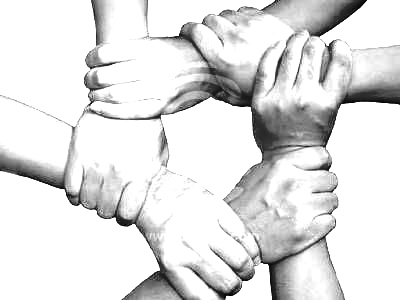
This coming Sunday, my colleague Gibran Rivera and I will be presenting at the Connecting for Change Conference (Bioneers by the Bay) in New Bedford, MA. This is one of my favorite events each year, as it gathers many thoughtful and innovative presenters and participants from local/regional and national/international levels to talk about how to create whole (just and sustainable) communities. In our workshop, “Are You Down With D-I-T? Skills for Change in a Network World,” Gibran and I will guide attendees through an exploration of the convergence of two of today’s powerful memes – the DIY (Do It Yourself) movement, which seems to be fueled in great part through younger generations and social media, and “collective impact,” made popular by FSG in its SSIR articles. Read More
December 20, 2012

|Photo by Joe Hardy|http://www.flickr.com/photos/flukazoid/2089475191|
“Are you a sophist?” I’ve been wrestling with that question for several weeks, at the invitation of Carol Sanford. Carol points out how many of us in the helping professions have fallen into the habit of trying to provide well-intended inspiration and advice to others at the expense of diminishing their capability. She likes to tell the story of Socrates’ awakening to what would often happen to those who listened to the Sophists preach in ancient Greece – people would leave inspired, and keep coming back for more. At a certain point, many of these “followers,” after seeing increasingly diminished returns, would become demoralized and convinced that they would never be able to reach the heights that were suggested in the speeches and sermons they heard. So Socrates took a different tack. He sought to help others grow by asking questions that helped them to move and take control of their own development. Read More
November 7, 2012

A couple of days ago my colleague Cynthia Parker blogged about the challenge and importance of staying connected across political divides. The conversation that has ensued seems especially relevant to where we stand right now, the day after the elections, faced with what some fear will be an increasingly polarized country. No matter where we may fall along political lines, there are strong feelings on all sides about what is the “right” direction for our country and how to get there. In this increasingly mediatized world, it is very tempting and easy to stand behind our computers and cast aspersions at one another. And all this does is continue to fray the already worn social fabric. How do we continue to recognize that we are all in this together, like it or not, and that respecting our collective humanity is a baseline for progress? Read More
September 26, 2012
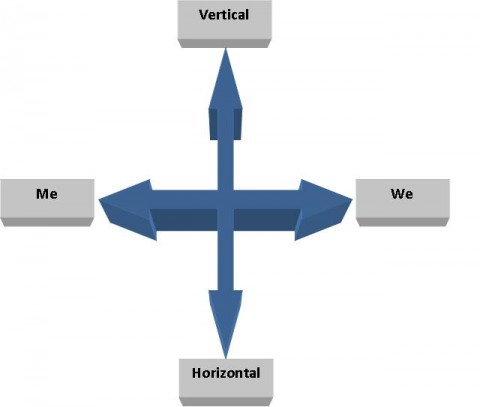
I want to tip my hat to mentors and thought partners, both near and far, for fueling my thinking around the topic of this post – thanks to Carol Sanford, Richard Hawkes and Tom Lombardi at Growth River, Glenda Eoyang, Richard Barrett, and my IISC colleague Gibran Rivera. There is much discussion in the social sectors these days about the need to be more fearless, to take risks, to fail early, to be innovative and vulnerable. Influenced by my colleagues, I like to frame all of this as being about our need to think and act more “vertically,” that is, with an evolutionary thrust, in the direction of personal and systemic growth and development, opportunity generation, and a sense of accountability to a greater community or “we.” Read More











